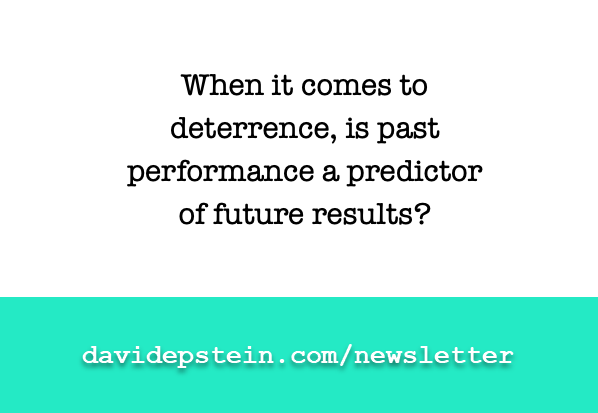
April 28, 2020
Welcome to the Range Report, where I hope to expand your personal “search function,” providing opportunities to connect disparate ideas, or alight on new interests.
I’m trying something different this report: a Q&A with an author who went through a dramatic career change, and whose work I recently read (and loved).
Fonda Lee has black belts in karate and kung fu, an MBA from Stanford, and before she was a novelist, she was a corporate strategist at Nike. That’s quite a shift. Fortunately, experiences are never wasted, and as you can read below, Lee draws on her previous life while writing the Green Bone Saga. The series chronicles the feud between powerful family clans as they vie for control of bioenergetic jade, a mineral that endows highly trained warriors (“Green Bones”) with deadly fighting prowess. The first book in the series, Jade City, won the 2018 World Fantasy Award for Best Novel. Lee was kind enough to answer my questions about career changing and writing. If you’re in a rush, I highlighted some of my favorite spots below.
DE: I’m interested in career zigzags, and I read that you are a “recovering corporate strategist” who used to have a high-powered career at Nike. Could you share a few details of how you transitioned?
FL: I went through the career transition in stages over three years. The first and most important step was deciding that I truly wanted to change careers and making the commitment to myself that I would stop at nothing to do so. I was at a point in my business career when I had to declare what path I intended to take in the company, and the more I thought about it, the more the answer became clear: “I don’t want any of these options. I want to write novels.” I found a way to cut back on my work hours by transitioning to a part-time schedule. Then I quit altogether and worked as a freelance consultant, taking on contracts in order to save up for several months at a time so I could write for the rest of the year. As my writing career ramped up, I gradually stopped taking on new contracts and became a full-time novelist. I’m also fortunate that my spouse has a stable, full-time job with health insurance, or it would’ve taken me longer to make that transition financially. The reality is that there was a long period of time in which writing was a full-time job that paid no money. My counsel to people aspiring to creative careers is to plan for that as best you can, so you’re not putting pressure on your creative work to also keep the lights on. On another note: at times I worried I might regret giving up my hard-won business career for the far less lucrative and predictable life of an author. I’m pleased to say that never happened. No regrets at all.
DE: As much as I found myself saying, “This would be a killer movie!”, during fight scenes, it was the global geopolitics and local economic warfare and drug-trade intricacies that really sucked me in. (I definitely had flashbacks to my own cartel reporting.) I couldn’t help but wonder if knowing your way around a boardroom and a balance sheet influenced your writing about political and business strategy. Do you think it did? If so, how?
FL: I’m fascinated by the reporting you did on drug cartels, because of all the research I did on the history, organization, and economics of organized crime as part of writing the Green Bone Saga. So it pleases me to no end that those aspects ring true to you. I think that having a business strategy background certainly does influence my writing, because even though I write fantasy novels, I’m always thinking about the way my fictional world works, really works, not just in terms of the magic system, but the politics and economics and culture. I want the fantastical elements to feel entirely real, as real as anything in our world. A substance with powerful properties like bioenergetic jade would absolutely be subject to state regulation, international trade, and black market smuggling, so that’s what I put down on the page.
DE: Reading one scene, I was reminded of the Mike Tyson quote, “Everyone has a plan until they get punched in the mouth.” Except, in this case, the character (Emery Anden) gets a plan after he gets punched in the mouth. You write that being struck “seemed to snap an entire childhood of martial training back into place.” I loved that description; it reminded me of crystallizing moments of crisis I experienced as an 800-meter runner–where crises develop in just a few strides. So I wasn’t surprised to read that you have karate and kung fu black belts. During my own book reporting, I was often struck by innovators talking about how their avocations informed their vocation. Nobel laureates, for example, are 22 times more likely than the average scientist to have a serious hobby. So I was wondering: are you still active in martial arts, and has your training influenced or inspired your writing?
FL: Yes, I’m still active in martial arts and it absolutely inspires my writing. For one thing, I love to write action scenes. I know some authors who find fight scenes difficult to write, but for me, they’re candy; I can be working on a tense interpersonal scene or delicate political scene and be motivated by the thought that the next chapter will be full of violence and thus smooth sailing. I’m not surprised that Nobel laureates are more likely to have serious hobbies. I think that in order to be extremely committed and focused in one area, you need to balance that out somehow. For me, the physicality and the immediacy of martial arts training helps me to step away from the highly internal, long-term, cerebral nature of my other work. And of course, for a novelist, everything that I study or experience in life is just fodder for fiction.
DE: I was a Game of Thrones watcher. (My house words: “When My Book Is Done.”) And I particularly enjoyed listening to the hilarious Bill Simmons Podcast commentary after GoT episodes. Bill always referred to the setting as “the 1300s.” It was a bit of a gag, but the obvious truth is that most fantasy feels like medieval Europe. Your world, though, is modern. Can you share a bit about why you decided to forsake the so-called 1300s?
FL: I didn’t forsake the 1300s so much as simply commit to what felt right for the book I was writing. When Jade City first came out, I wrote this article on how I’d like to see more fantasy fiction depart from the default milieu of medieval Europe, because I really do believe in stretching the bounds of the genre and taking inspiration from a much larger swath of human history and culture. But I didn’t set Jade City in a modern time period in order to be contrarian. I knew from the start this was to be an East Asia-inspired gangster family saga, and so I had a vision and aesthetic in my mind, one that involved cars and machine guns, men in suits making deals in fancy restaurants and dark alleyways, a metropolis burgeoning with people and tourists and trade. A traditional medieval time period simply wouldn’t fit the bill for what I wanted to accomplish. (By the way, I would like to pledge fealty to your Game of Thrones house. “When My Book Is Done!”)
DE: Your fealty is duly noted! Now, thinking with analogies is another topic I’ve written about. You wield some beautiful analogies. For example: “Anden had been indoctrinated since childhood with the idea that for Green Bones, the possibility of death was like the weather–you could make attempts to predict it, but you would likely be wrong, and no one would change their most important plans due to threat of rain.” Do you purposely draw on analogies when developing plot points or descriptions?
FL: Yes, certainly, but it’s not something I can plan. I hope that the right words come to me to allow a plot point, a scene, or even a small and subtle character moment to come alive. One of my favorite lines in Jade War is when [major characters of similar status] Maik Tar and Rohn Toro meet and greet each other with “perfectly equal shallow salutes, like a meeting between two dogs of the same size.”
DE: I’m a new parent, and so I may be reading with new-parent-colored glasses, but I thought your depictions of crime bosses in the mundane work of parenting really made the characters multidimensional. I read that you also have kids. And so, ya know, asking for a friend…how has parenting informed and/or obstructed your writing?
FL: Well, for one thing, it completely dissolves any barrier between work and personal life. (Which is already hard enough to maintain for any writer.) Especially when my kids were little, every time I was writing, I felt guilty about not spending time with them (or I was being frustratingly distracted by them), and when I was with my kids, I felt anxious about not writing, or my mind would chew over plot issues at the playground. I learned to write in the car during my kids’ preschool classes, swim lessons…whenever I could get a chance. And I really enjoy narrative juxtaposition, so one of the things I wanted to do in Jade War was contrast the epic and deadly plot lines with the moments of relatable domestic and family intimacy.
DE: I saw you quoted as saying, “Sometimes your career does not quite go as expected.” I think that’s closer to “almost all the time,” partly thanks to the “end-of-history illusion”–the psychological finding that we all recognize we have changed a lot in the past but proceed to underestimate how much we will change in the future. And we underestimate future change at every time point in life. Would anything about your current work come as a big surprise to your former self?
FL: I think my former self would be surprised at the fact that I’m writing anything set in or inspired by Asian culture. As a second generation North American (I was born in Canada) I grew up feeling removed from my cultural ancestry. I’ve never lived abroad and I don’t speak any other languages. So I wouldn’t have thought of myself as “Asian enough” to write a secondary world fantasy steeped in modern Asia influences. (A strange but nevertheless real anxiety.) It was only as I grew older and more confident in both my Asian-American identity and my ability to write and research that I felt able to tackle a project like the Green Bone Saga.
Thanks so much for reading. Until next time…
David
p.s. If you fancy a dive into the Green Bone universe, I highly recommend the audio version of Jade City; the narrator is outstanding.
p.p.s. You can find previous Range Reports here, and if you have a friend who might enjoy this newsletter, they can subscribe here.


